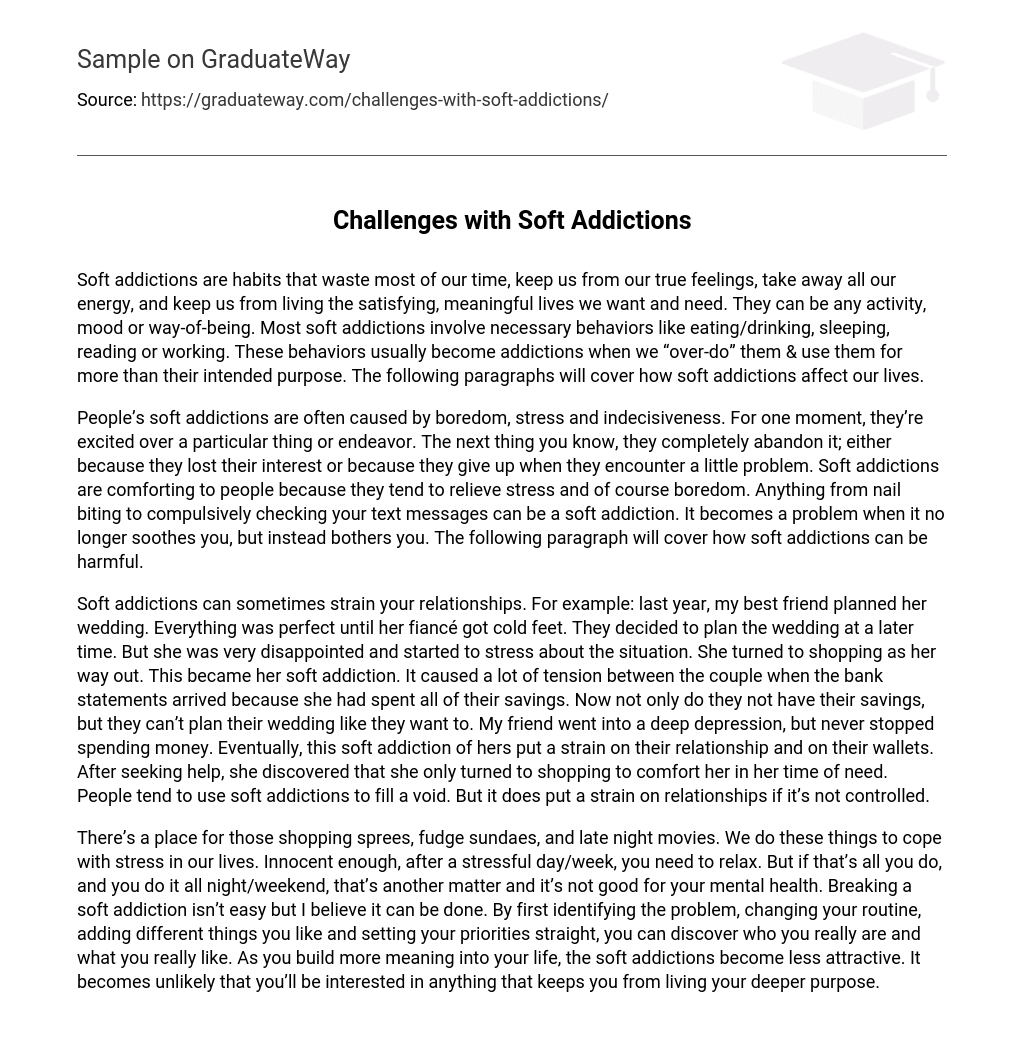Soft addictions, which can take the form of any activity, mood, or way of being, are habits that consume the majority of our time, prevent us from experiencing genuine emotions, drain our energy, and prevent us from achieving the fulfilling and meaningful lives we desire and require. Despite these habits often being necessary behaviors like eating/drinking, sleeping, reading, or working, they morph into addictions when we exceed the appropriate limit and utilize them beyond their original purpose. The subsequent paragraphs will delve into the impact of soft addictions on our daily existence.
Soft addictions can arise from feelings of boredom, stress, and indecisiveness, leading individuals to lose interest or give up when faced with a minor obstacle. These addictions serve as a source of comfort, easing stress and alleviating boredom. Nail biting and compulsively checking text messages are just a few examples of soft addictions. However, when these behaviors no longer provide relief and instead become bothersome, they pose a problem. In the next paragraph, we will explore the potential harm associated with soft addictions.
Soft addictions can strain relationships, as illustrated by an incident involving my best friend. Last year, she was enthusiastically planning her wedding when her fiancé got cold feet and decided to postpone the wedding. This disappointment and stress drove her to use shopping as a form of escape, which gradually turned into a soft addiction. The consequences were severe when they received their bank statements and discovered that she had spent all their savings. As a result, not only did they lose their savings but also compromised their ability to plan the wedding according to their desires. Despite sinking into deep depression, my friend didn’t stop her spending habits. Eventually, this soft addiction caused strain in both their relationship and finances. Seeking help made her realize that shopping had become a source of comfort during tough times. Soft addictions are often used to fill emotional voids but if left unchecked, they can have significant impacts on relationships.
Engaging in activities like shopping, indulging in fudge sundaes, and watching late night movies can serve as innocent relaxation methods to cope with stress after a demanding day or week. However, excessive involvement in these activities can negatively impact your mental health. Overcoming a soft addiction may be difficult but not impossible. The first step is acknowledging the problem and then making changes to your daily routine. By incorporating different enjoyable activities and prioritizing your goals, you can uncover your true self and genuine interests while adding more purpose and fulfillment to your life. Ultimately, this will reduce the allure of soft addictions, making it unlikely for anything to distract you from living a more meaningful life.





